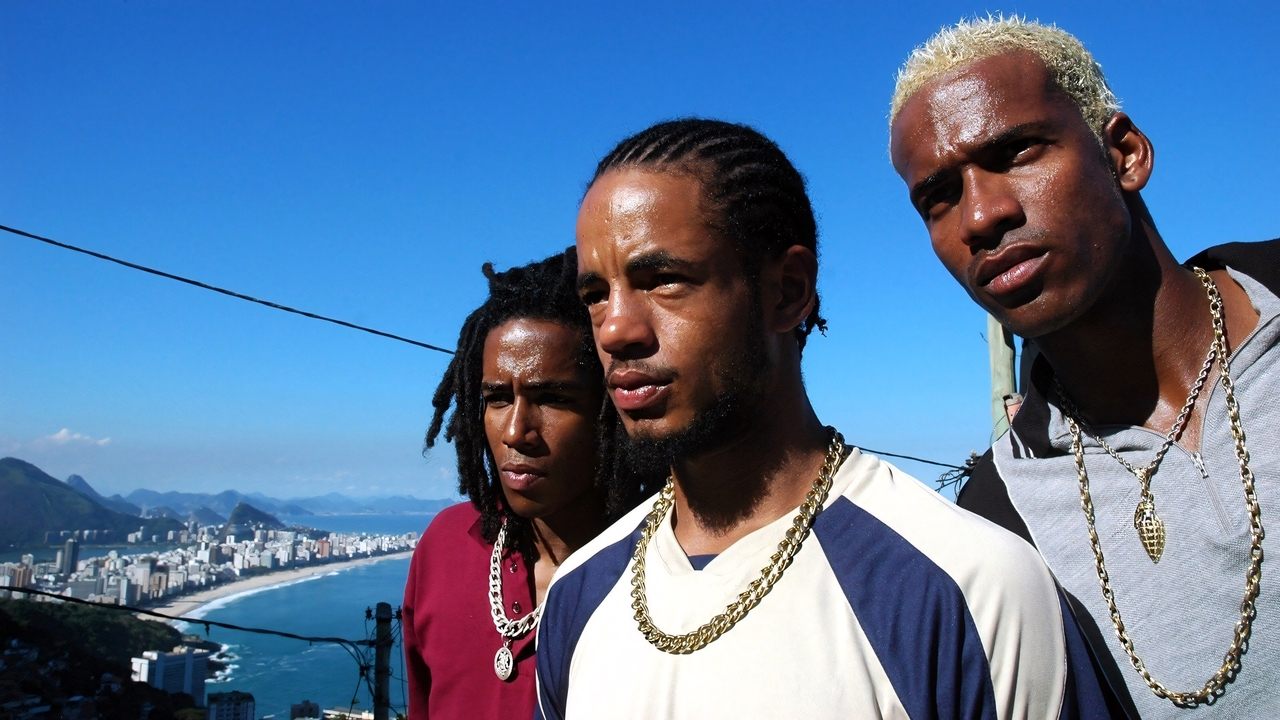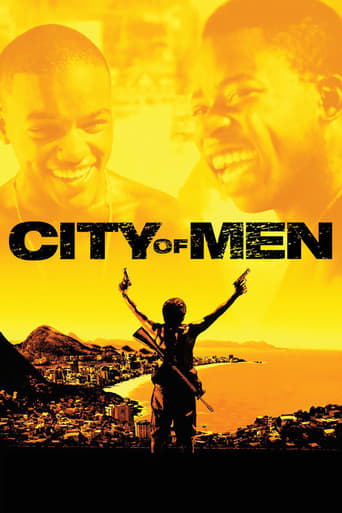

Please don't spend money on this.
... View MoreYour blood may run cold, but you now find yourself pinioned to the story.
... View MoreWhile it doesn't offer any answers, it both thrills and makes you think.
... View MoreA movie that not only functions as a solid scarefest but a razor-sharp satire.
... View MoreWhile not as great as City of God, City of Men is a good movie in its own right which's rare because usually sequels are terrible in some way or form. It's more of a spiritual sequel as none of the characters from the previous movie appear. Certain scenes lag on while others move the action and story. The acting's great, the story's gripping and the music captures the mood and feel of Brazil. I'd suggest you see for yourself.
... View More'City of God' was a visceral epic, a tale of the slummification of a Brazillian new suburb and the consequences of this story for the lives of those who lived there. 'City of Men' is a loose sort of follow up, with a different director, and it's a lesser film, without Fernando Meirelles' scintillating direction. More than anything else, the story suffers because its protagonists are so clearly innocents caught up in events beyond their control; while it's still an effective portrayal of the harshness of life in the favella, it lacks the sense of individual responsibility that is usually a necessary part of the most powerful drama. Which is not to say that it's a bad film, making good use of the dramatic setting of Rio de Janeiro, and conveying well not just the brutality, but also the fragility, of a life lived at the margins.
... View MoreIn this feature film adaptation of the Brazilian TV-Series City of Men, story is taking us to the early beginnings of the gangs of Rio De Janeiro in City of God. However, gangs are no more underdogs. They erect a reign of anarchy only because they don't have nothing else to do, and because they feel good when they commit anarchy. Their families are torn apart, schools are on strike, communities are swept by crime. Gangs are rebels without a cause, anyhow.Since these people are ignorant, they are fooled and taken in easily to crime. As the story progresses through an 18-year-old kid's look of life, he is seeking his father who has left home when he's born. Then he finds out that his father was a criminal and currently is a fugitive. Even though the kid still chose his father's side and got against his dearest friend.The plot is in the hands of an adapted screenplay which is inadequate to bear it. There is a terminated friendship between two old mucker, and one is shot by the other. Also in order to possess a hill which has a good scenic sea view, two friends get against each other just to have more injunctive power and authority over the same community of their own. Here the screenplay should have been effective, but it's not. So we fall into clatters of people defending their thoughts. We never find out the truth which side is right, which side is not; and there is no clarity. Both sides cannot be right at the same time, and if both sides are wrong then the story is self-defeating, and thus the story-teller is wrong, and if the story-teller is wrong, then we are mistaken to watch this complete nonsense.There is a dead end story you're running into. Leaders of the two enemy gangs are getting killed, at the end. Revenges are turned into vendettas. While a little dispute became a war, in the middle of the war, our leading role heroes are escaping out of it, with an infant boy.Once he has already seen the grim face of the war, Baby Clayton will never stop crying.
... View MoreDespite what I had heard, this was in no way a sequel to City of God, post viewing I have learned that it is a follow-up to a TV series. Still, this film will be constantly compared to City of God, so let's get that out of the way first. City of God makes City of Men look like a day at the park, at times it is hard to imagine that both stories share a common location. In a world where City of God does not existed City of Men would shine brighter, unfortunately for this film that is not the case, it is a constant reminder of a superior film. Both films do share amazing cinematography, no matter how many times and in how many movies I see shots of Morro da Sinuca, I am always amazed by it's vastness and unique beauty. Also both films acting, if it can be called that, goes beyond acting to a feeling of capturing real life as it happens. City of Men dives deeper into the lives of individual characters, allowing us to see how a generational cycle has created and sustained this type of environment for it's people. I walk away from this film feeling grateful for living where I live and that tomorrow I'll have to chose between Coke or Pepsi not life or death.
... View More